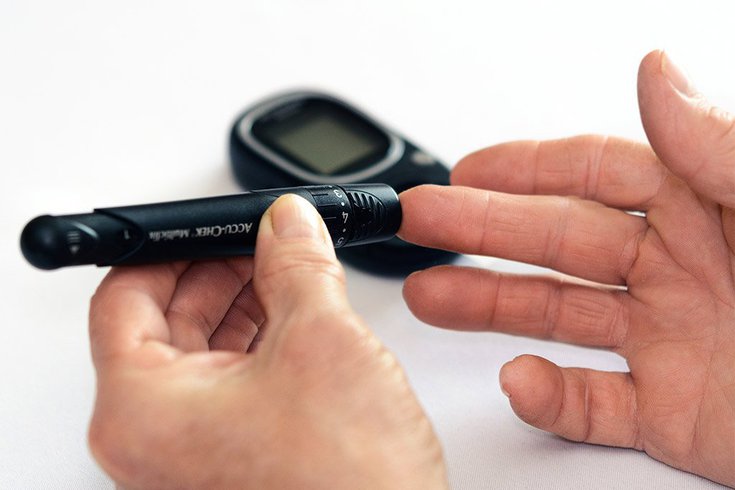
June 09, 2021
 PhotoMIX Ltd./Pexels.com
PhotoMIX Ltd./Pexels.com
A recent study involving 3,700 people found 14.4% of hospitalized COVID-19 patients developed diabetes, though a distinction between type 1 and type 2 was not made.
Two recent studies supported by the National Institute of Health offer new insights into the connection between COVID-19 and diabetes.
The research teams from Stanford and Cornell universities found that the coronavirus can impact the body's insulin-producing cells, which can raise blood glucose levels — a hallmark of diabetes.
The pancreas makes insulin, which helps sugar get into the body's cells to be used as energy. But with type 1 diabetes, the body doesn't make any insulin and the glucose stays in the blood, causing health problems. With type 2 diabetes, the body makes some — but not enough — insulin.
One of the studies, published by the Journal of Diabetes, Obesity and Metabolism, found that 14.4% of hospitalized COVID-19 patients developed diabetes, though a distinction between type 1 and type 2 was not made. The study involved more than 3,700 people.
Previous data has shown people are more likely to develop type 1 diabetes after an acute illness, like the flu or gastroenteritis, because they cause the body's immune system to increase its number of antibodies.
This immune system response leads to a sudden loss of insulin-producing cells, causing blood glucose to rise, according to Ohio State University.
Earlier lab research also pointed toward COVID-19 infecting beta cells, causing them to replicate and create excess insulin. These cells also have the protein that the virus binds to in order to spread through the body.
The studies confirmed that the virus infected pancreatic insulin-producing cells.
Pancreatic tissue was also impacted by COVID-19, researchers found. The tissue containing beta cells, called islets, was changed by the virus, ultimately producing less insulin.
"The consequences of this transdifferentiation of beta cells aren’t yet clear, but would be predicted to worsen insulin deficiency and raise blood glucose levels," according to the study.
Researchers said more work needs to be done to figure out how and why the virus gets to the pancreas.
"Above all, this work provides yet another reminder of the importance of protecting yourself, your family members and your community from COVID-19 by getting vaccinated if you haven’t already — and encouraging your loved ones to do the same," the study read.
Other health complications, like pneumonia and blood clots, also have been prompted by acute COVID-19 illnesses.
• Frequent urination
• Increased thirst with blurry vision
• Inability to gain weight lost during illness
• Slow wound healing
• Fatigue
Follow Hannah & PhillyVoice on Twitter: @hannah_kanik | @thePhillyVoice
Like us on Facebook: PhillyVoice
Add Hannah's RSS feed to your feed reader
Have a news tip? Let us know.